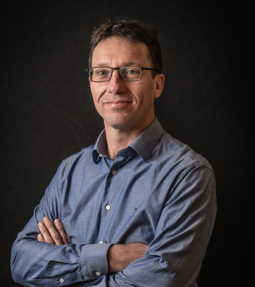Thanks to the development of minimally invasive instruments, surgeries have significantly changed over the past decades. For many procedures, a small incision is sufficient. This benefits the patient and provides many advantages to the healthcare system as a whole. However, it often takes a long time for an innovative minimally invasive instrument to reach the hospital floor—if it even succeeds. Many promising innovations frequently do not make it to the final stage.
Within the Medical Delta program NIMIT, engineers and doctors have been collaborating for years to develop new minimally invasive instruments. They are frustrated to see many promising innovations either fail to reach the final stage or end up as prototypes in a drawer. This is partly due to the fact that testing and validating these instruments in a hospital environment involve complex, costly, and time-consuming processes.
The Medical Delta Program ‘Medical Instruments Manufacturing: from Idea to Clinic (MIMIC)’ builds on the foundation of NIMIT. The goal of the MIMIC program is to accelerate the innovation process for advanced medical instruments used in minimally invasive interventions and to increase their chances of success.
Innovation center and Production facility
A critical phase in the innovation process of minimally invasive instruments is the stage where initial patient data must be collected. Developing a series of instruments that can be clinically used is relatively expensive, risky, and provides limited scientific output for, for example, postdocs or PhD candidates.
The Medical Delta Program MIMIC combines expertise and funding to facilitate bottom-up innovation up to so-called ‘first-in-human studies’.
The core of the consortium is a new manufacturing lab: an innovation center and production facility. This is where the transition from prototype to clinical use takes place. Through a so-called Health Technology Assessment (HTA), it is determined which innovations are promising enough to ultimately reach clinical practice.
Mbo and university medical center collaborate
A regional consortium brings together expertise to facilitate first-in-human studies. The core of the collaboration is the cycle of mbo, hbo, Technical University, and University Medical Center. The focus is on design techniques and manufacturing techniques for small series, business cases, documentation, and testing in phantoms and clinical studies. This is implemented in both research and education.
Besides researchers and educators across the spectrum from practical to applied academic, the consortium includes startups and so-called Original Equipment Manufacturer (OEM) suppliers of medical components and instruments, as well as suppliers of engineering and technology. By involving companies and their expertise at an early stage, the Medical Delta Program MIMIC aims to accelerate market introductions later in the innovation process.
The Medical Delta Program MIMIC uses this approach to help promising minimally invasive instruments move from the lab to the clinic.
Goals
The Medical Delta Program MIMIC:
- facilitates a structured and validated design and production process for minimally invasive instruments within a quality system that supports (pre)clinical validation and assessment of economic and sustainability requirements;
- involves mbo- and hbo- students in the production of medical technology and the translation from lab to clinical practice. This enhances knowledge about creating sustainable prototypes (modules and software) and test platforms (phantoms), as well as understanding innovation within the context of regulations and clinical requirements;
- strengthens the position of South Holland in the field of medtech innovation;
- facilitates new applied research into design for manufacturability in a small-scale, highly regulated setting, and helps accelerate valorization through standardization.
The program is a continuation of the Medical Delta NIMIT scientific program Medical Delta NIMIT: Novel Instruments for Minimally Invasive Techniques
Contact
For more information or if you're interested in participating, please contact one of our contact persons.










